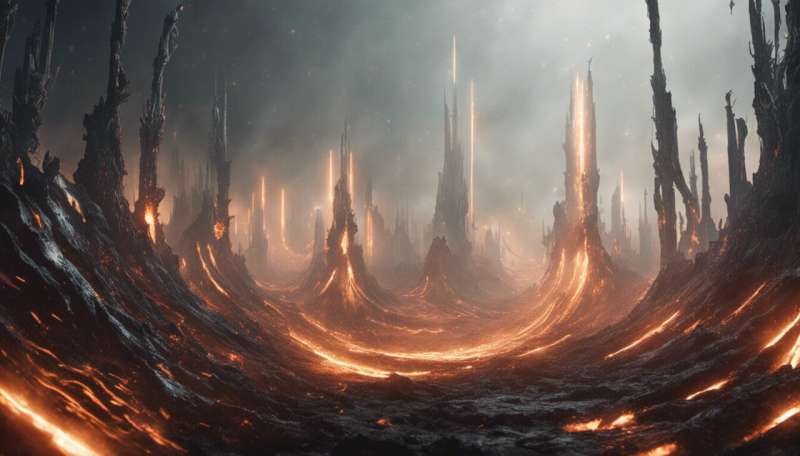3Qs: Doomsday predictions debunked

Some people are not making plans for the New Year. From hiding in bomb shelters to sharpening their survival skills, doomsday theorists are preparing for judgment day, which the Mayan calendar predicts will take place on Friday. Toyoko Orimoto is an assistant professor of physics in the College of Science and a member of the Compact Muon Solenoid collaboration at the Large Hadron Collider—the world's most powerful particle accelerator—at CERN, the European Organization for Nuclear Research, in Geneva, Switzerland. Here, she explains what a potential end of days scenario would look like and why we should be more concerned about climate change.
As a scientist, are you bothered by unscientific claims of apocalyptic events? What is the most far-fetched doomsday scenario that you have heard?
I don't know if "bothered" is the right word. For the most part, I tend to ignore unscientific claims about most things, including doomsday events. Perhaps the most far-fetched doomsday scenario I've encountered is the idea that the Large Hadron Collider, would create a black hole, which, in turn, would consume the Earth. Of course, we've debunked this far-fetched hypothesis, as the Large Hadron Collider has been operating smoothly for years.
An astrobiologist at NASA has debunked the rumor of the imminent destruction of the world in which a mysterious planet known as Nibiru would collide with the Earth. He said, "There is no true issue here. This is just manufactured fantasy." But pretend for a moment that an end of days scenario were to play out. What would it look like?
A realistic doomsday scenario would be that of an asteroid hitting the Earth. Craters on the Earth suggest that such incidents have in fact occurred in the past. Perhaps the most famous asteroid is the one that hit the Earth 65 million years ago and is hypothesized to have triggered the extinction of the dinosaurs. The impact of even a small asteroid hitting the Earth could be devastating.
I've read for instance that if a two-kilometer diameter asteroid were to strike the Earth at something like 50,000 kilometers per hour the energy released in the impact would be equivalent to that of a 1 million megaton bomb. Such a large impact would produce huge tsunamis, or bring about a prolonged period of cold weather (as is speculated to have brought upon the extinction of the dinosaurs), or both. The government, of course, has taken steps to ensure we could foretell any possible impacts and has developed a program to avoid such an impact.
Scientists have continued to refute claims that the world will end in 2012, but many doomsday preppers have nonetheless built arks and bomb shelters in case of the planet's catastrophic demise. Why do you think end of days scenarios are so popular among particular contingents of people?
To be honest, I have no idea. I am far more concerned about issues, such as climate change, which we can have control over, but without our intervention could bring about disastrous consequences.
Climate change is potentially devastating simply because humans have settled the Earth in ways that suit what the Earth used to look like. For example, we've built cities by the ocean and farms in places where weather conditions are good for crop growth. But rising sea levels can make existing population centers uninhabitable—think New Orleans or New York—and rising temperatures can make existing farmland unproductive. The scary thing is that these problems are far more acute in developing countries that don't have U.S.-like resources to adapt to what changes may come, and whose populations are far more economically insecure in any case.
Climate change may not seize people's attention in the same way as more implausible theories, because of its gradual nature. It could be that slow changes taking place over the course of many decades do not grip the imagination of paranoiacs the way sudden cataclysmic events can, never mind the respective scientific plausibility of each.
Provided by Northeastern University


















